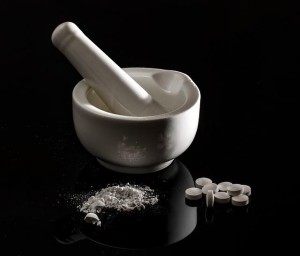
Can crushing tablets cause harm ?
I am delighted to share this extremely interesting article with you. It was contributed by Zul Mamon, who is an experienced pharmacist and Senior Consultant and Responsible Person at Pharma Experts Limited. If you are reading this via FB please share it so more people can read it.
Can Crushing Tablets Cause Harm?
Eating and drinking food can be pleasurable, but have you ever thought about what it feels like not being able to swallow?
Dysphagia or difficulty in swallowing can affect the young and the elderly. In the UK, it is thought over 60% of the elderly population over the age of 60 is prone to this condition.
Having experienced dysphagia a few years ago, I describe it is a strange sensation as though someone has their hands wrapped around your neck and is squeezing. This can be alarming as the ability to swallow the food or drink in your mouth, something we take for granted suddenly disappears. To prevent any substance entering the airways it is natural for the coughing reflex to kick in which results in the sufferer spitting out the food or drink.
There are many possible causes of dysphagia ranging from anxiety, dry mouth to illnesses affecting the gullet or even taking medicines which affect swallowing itself. Anyone experiencing dysphagia should consult their doctor to get the correct diagnosis.
As a pharmacist with a keen interest in the care of the elderly, there have been a number of occasions where I have observed carers looking after their loved ones crushing tablets before they are given. Stopping them can be a challenge; after all they are doing so in the interest of the person they are caring for. Whist it may be okay for some tablets to be crushed and administered, there are others that should not be crushed, as doing so may lead to serious consequences.
Tablets are useful as they ensure the medicinal ingredient is easy to take in divided doses and they help mask any the taste of the active substance such as bitterness.
The way tablets and capsules are formulated has changed considerably as our knowledge of how drugs are released in the body has increased over time. Depending on the type of formulation, the active drug can be mixed with other inactive ingredients to ensure it is released at the right speed into the body and at the right location e.g. the mouth, stomach or intestine.
Although many medicines in tablet form are formulated to release the drug immediately after being taken, a number of other formulations which alter the drug release are available e.g. extended release and enteric coated.
Extended release formulations are designed to release the drug over a period of time (usually 12 to 24 hours) so that it is absorbed slowly and persists in the body till it is excreted. Crushing an extended release preparation may cause a high concentration of the drug to be released immediately. This is likely to increase the risk of overdosing and side effects.
Enteric coated tablets are specially coated to ensure they remain intact in the stomach so that the medicine is released in the intestine. This type of coating is used either protect the medicine from the stomach acid or to prevent it from irritating the stomach lining which could lead to ulceration.
Manipulation of tablets by crushing can therefore alter the properties of the formulation and lead to ineffective treatment, side effects, irritation and ulcer formation. In addition it also poses a risk to the carer as the act of crushing results in the formation of a toxic powder which could be inhaled.
Always ask your pharmacist if it is safe to crush a tablet as alternatives in the form of liquid formulations maybe available.
Zul Mamon
